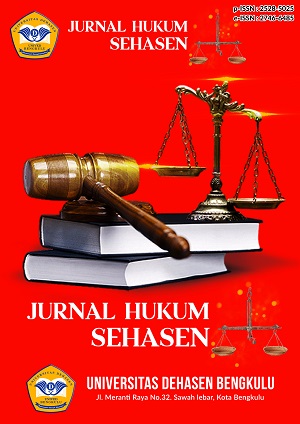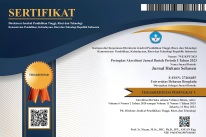Electronic and Information Technology Law as a Control Tool and Legal Umbrella for Communities and Business Actors in Facing the Demographic Bonus 2030
Abstract
In the year 2030, the number of productive age groups will double, and this demographic bonus presents an opportunity for Indonesia to enhance productivity as it enters the digital transformation era. In its implementation, the demographic bonus in the era of digitalization and information technology, while offering positive effects on productivity, also carries negative consequences. These include an increase in criminal activities facilitated by the use of information and electronic transaction technologies, and due to the ease and sophistication of available technology, these crimes can transcend national boundaries. To address these challenges, efforts in enforcement and prevention, particularly in criminal law, need to be undertaken while still considering the norms prevailing in society. The existence of Law No. 11 of 2008 Concerning Electronic Information and Transactions and Republic of Indonesia Law No. 19 of 2016 Concerning Amendments to Law No. 11 of 2008 Concerning Electronic Information and Transactions ('UU ITE') is expected to serve as a legal framework for society and business actors, thereby maximizing the productivity of the demographic bonus and achieving societal well-being.
Downloads
Copyright (c) 2024 Dave Advitama, Tuti Widyaningrum, Rio Christiawan, Timbo Mangaranap Sirait

This work is licensed under a Creative Commons Attribution-ShareAlike 4.0 International License.






